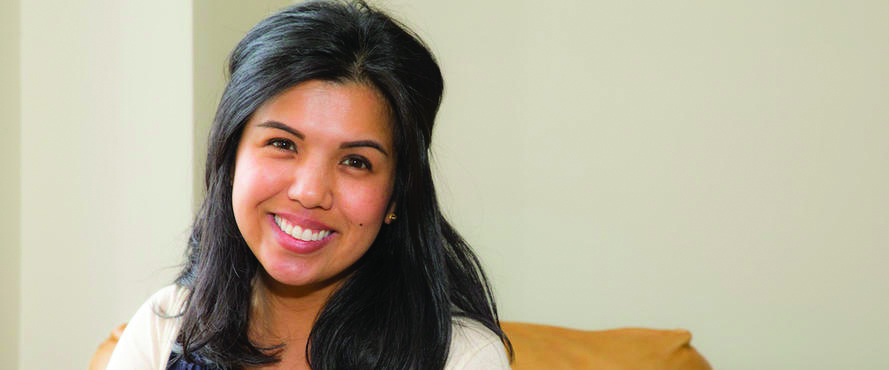Chicago refugee initiative at NEIU
Dr. Aimee Hilado, an expertise in human behavior in the social environment, clinical practice with trauma-exposed immigrants and refugees, early childhood and adult mental health.
July 25, 2017
As founder of the Refugee One Wellness Program, she has worked closely with Refugee One as well as other programs and task forces since 2011. In July of this year, NEIU received a grant to provide professional development training for many working in refugee and immigrant communities in Chicago. The grant came from a partnership between Hilado and her work as mental health first responder coordinator at the Chicago Is With You Task Force.
“This grant was really born from recognizing that we need to make sure we continue to provide professional development opportunities for clinicians that want to work in immigrant and refugee mental health,” said Hilado.
The connection with Ann and Robert H Lurie Children’s Hospital came from the Chicago Is With You task force launched in December of 2016. This initiative began with a focus on four key areas of mental health, legal services, diversity training and education as well as providing resources for Deferred Action for Childhood Arrival youth. Mayor Rahm Emanuel, Senator Richard J. Durbin, and Congressman as well as NEIU alumni Luis Gutiérrez, founded the initiative which incorporated Hilado’s clinical practice in refugee and immigrant mental health with culturally sensitive practice.
The grant provides monthly professional development training for clinicians and community based workers who interface with immigrants and refugees with varying statuses. The trainings are also designed to support NEIU students who want to work with trauma exposed and vulnerable immigrant and refugee populations
“The focus is on supporting mental health so that people can really thrive and be productive individuals in our community,” Hilado said.
“I think it’s (the professional development training) appealing to a lot of groups of people, honestly. I think it would be an amazing opportunity to expand our cultural knowledge, regardless of the profession or specialization someone is in, especially during the political climate we’re in,” commented Briana Hornsby, a recent graduate of Loyola’s masters of social work program.
“I don’t think people really know what refugees have to go through, or even immigrants, and it would be incredibly eye opening for anyone to be a part of that experience,” Hornsby said.
The first recruitment training took place on July 14 at NEIU’s EL Centro campus. According to Hilado about 20 people attended the first training. Another session is scheduled for July 28 at the Stanley Manne Children’s Research Institute (2430 N. Halsted, Chicago). There are approximately 50 people expected to attend. Hilado hopes to have over 100 mental health volunteers at the conclusion of the recruitment trainings to complete the monthly sessions. Once the recruitment trainings are finished monthly trainings will begin in August. Training dates will be announced after July 28.
“I think the term mental health is really misunderstood. Not only in the U.S. but across cultures. It’s also a relationship. It really comes in the form of supporting people. Especially new immigrants.. helping them navigate life in Chicago. So, therapeutic work can include getting to know a person’s neighborhood or getting someone connected with resources beyond just what is offered in therapy,” Hilado said.
Part of the hope with these monthly trainings is to add clarity to the everyday confusion surrounding immigration and its statuses. According to the U.S. State Department,non U.S. citizens enter the country with one of two statuses, Immigrant or Nonimmigrant. There are 15 types of Nonimmigrant status categorized under five categories. These categories range from humanitarian to tourist to academic. A Nonimmigrant visa is temporary and visitors are limited to the activity specifically listed on their visa.
“We’re very fortunate. NEIU is a great place for initiatives like this to be housed. As an academic institution not only do our students reflect the diverse immigrant and refugee populations…But it also is a beautiful setting for training future professionals, who, are going to go right back to into these communities and really make a difference,” Hilado said.
An Immigrant visa means that you enter the U.S. with legal standing. The term can be used interchangeably with green card holder, resident alien and legal permanent resident. Refugees fall under the category of immigrant status. There are only three categories of immigrant visa: immediate family member or spouse sponsored, employer sponsored and other. These types of visas are not temporary. Refugees specifically are vetted abroad and identified by the UN Refugee Agency (UNHCR).
When those with immigrant status arrive they have work authorization, access to a social security number and can access public benefits. “There are distinctions and this is where people need to be informed about the importance of these statuses. These labels because it really does define rights and privileges in the united states more than ever,” said Hilado.
“That’s also part of the goal of YNA (You Are Not Alone Initiative). It is providing professional development to folks that work with immigrant and refugee groups but also being ambassadors and advocates for those communities. Whereas some of this information, it needs to be talked about, not just with immigrant and refugee groups but around the dinner table–making sure that everyone is an informed citizen.”








